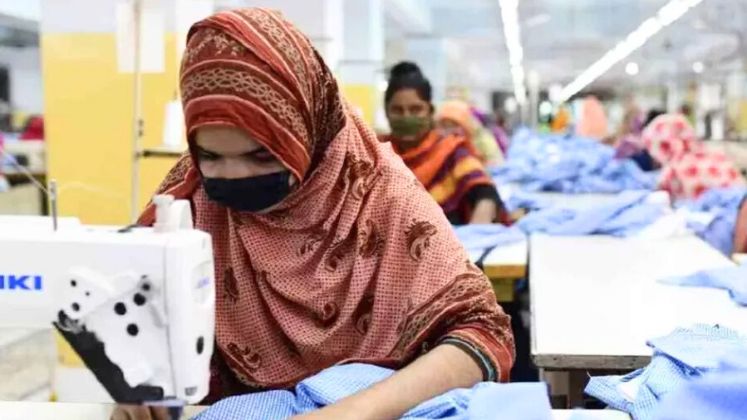
Bangladesh’s total exports decreased 4.34 per cent in FY ’24 compared to the previous year due to fewer ready-made garment (RMG) shipments, reflecting the economy’s and industry’s slowdown.
Data issued by the Bangladesh Bank shows that the country’s export receipts were US $ 46.49 billion in FY ’23 compared to US $ 44.47 billion in the previous fiscal year. The National Board of Revenue (NBR) provided the export data, which the central bank claimed to have produced.
The export statistics for the whole fiscal year 2024 have not yet been released by the Export Promotion Bureau (EPB).
The Ministry of Commerce agency said in July that to guarantee proper reporting, it would not be updating figures for three months. It decided to do so after the central bank released data on the country’s balance of payments (BoP), which showed a US $ 14 billion gap compared to the EPB’s statistics.
In the latest BoP, the Bangladesh Bank said export value, which is calculated on a Free on Board (FoB) basis for the BoP, stood at US $ 40.8 billion in FY ’24, down by nearly 6 per cent year-on-year.
When items are transported FOB, the customer assumes ownership and liability of the goods.
The central bank further stated that shipments from Bangladesh’s Export Processing Zones (EPZ) had been factored into the FoB.
The export data and the FoB data show a US $ 3.66 billion discrepancy. This is because, according to a top Bangladesh Bank official, they do not count total exports using the FoB technique.
Khandoker Rafiqul Islam, newly elected president of the Bangladesh Garment Manufacturers and Exporters Association (BGMEA), said their exports to both Europe and the US are in the negative as per internal data.
The export data compiled by the Bangladesh Bank showed that exports of woven garments dropped 5.36 per cent year-on-year to US $ 16.86 billion in FY ’24. Knitwear, the biggest export earner, accounted for 44 per cent of total receipts. However, it also posted a 5.35 per cent decline to US $ 19.26 billion.
Islam said buyers usually place orders during July and August, but this time they became cautious due to the political changeover stemming from a recent mass uprising.






